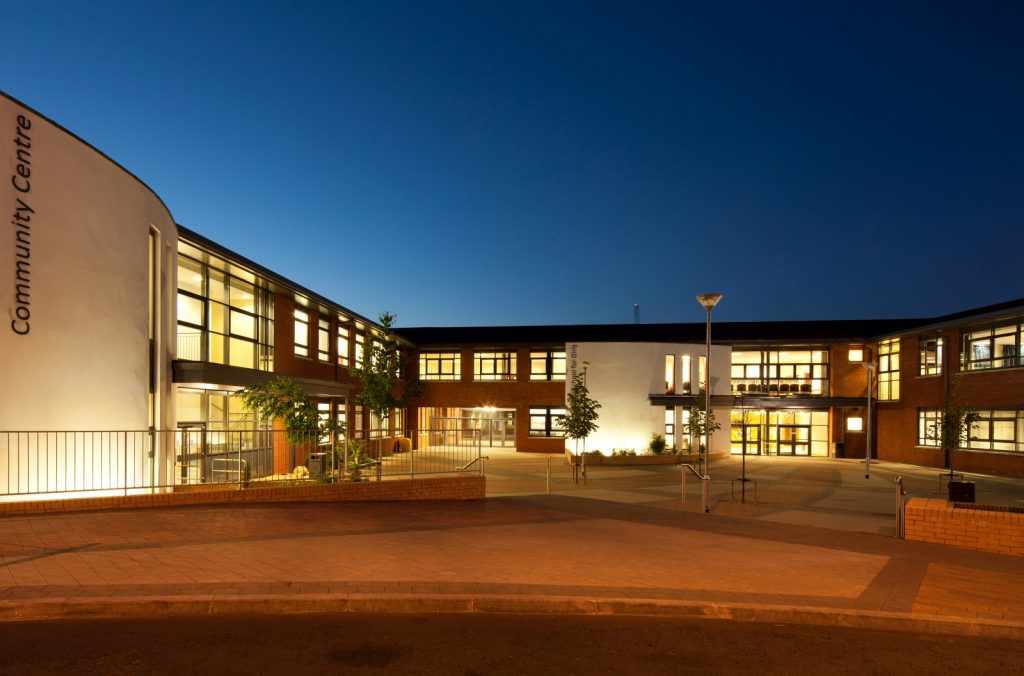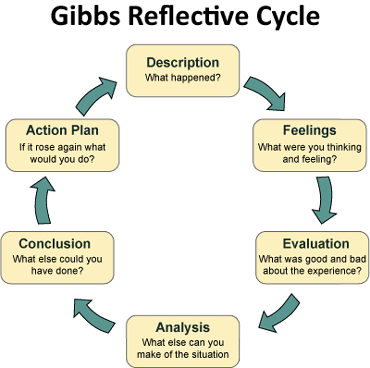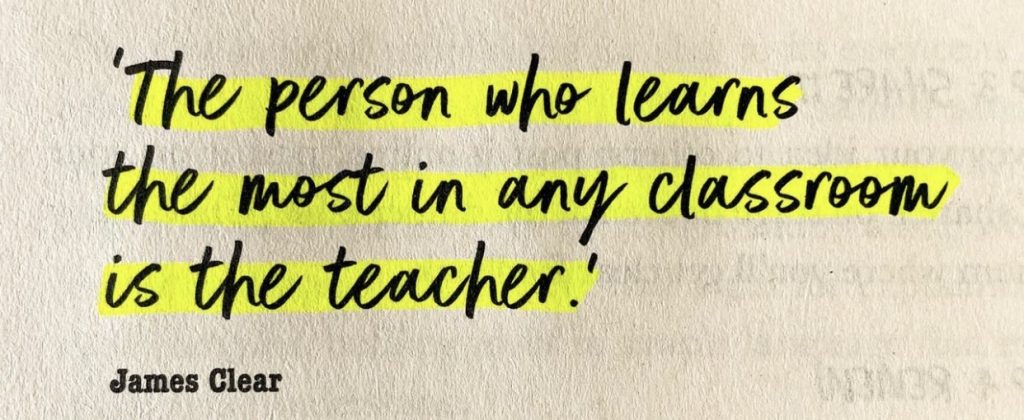
As I prepared for my first week of placement I was filled with excitement about what the day would entail. An entire day of spending time in a drama classroom with keen, eager-to-learn students was something I often thought about as I struggled through university assignments because it helped me to remember that I was working towards something bigger, something I had dreamt of for years. I made my way to the school in my most teacher-appropriate outfit (it almost felt like a costume and character persona) and remembered my experience of shadowing my former drama teacher in my own school before the summer. I was in awe of how she commanded the room, the respect the students showed her, and how at ease they seemed around her. I remember what also struck me was her ability to get involved with what the students were doing and how responsive they were to her advice. This, and more, was what I hoped to bring to my placement experience at Belfast Model School for Girls. Perhaps my first mistake was assuming that this experience would be like the one I had before, in that the students in the classroom were there to develop their skills in drama, excited to learn more and get involved with the performance aspect of the subject. Moreso, I think my biggest mistake on that day was my self-assuredness and the thought that my usual “fake it, til’ you make it” act of confidence, would see me through lessons without hiccups or disturbance…this is not how the day unfolded. In order to reflect upon my placement experience thus far, I will use Gibbs’ reflective cycle.

Expectations will not serve you well
“The ability to reflect on your own practice is critical to your development as a teacher. Effective learning will not occur unless you reflect” (Spencer 2016), and luckily due to my experience in theatre, self-reflection is not something I am a stranger to. I mention the theatre experience because this is ultimately where my confidence stems from, feeling a little nervous but not allowing the nerves to seep through was something I could use in my approach to placement to bring the “fake it til you make it” aspect of my confidence to the forefront. What happened on that first day of school though, was something that shook my belief in that method to the very core. I walked in to meet the teacher who also happens to be the head of drama in the school, Ms Simpson, and she showed me to her classroom. It was a huge room with plenty of floor space for the students to rehearse scenes and be playful in their tasks for the lesson. I sat at the desk beside hers as we prepared for her first class of the day, a group of Year 10 students who were studying The Crucible. After introducing me as Miss McCullough, she explained to them, and ultimately to me, what they would be doing for the duration of their forty-minute lesson: creating a scene with a beginning, middle, and end which was to be based upon the subject matter of someone being accused of being a witch. Once separated into groups though, it became clear to me that the students were completely uninterested in what they had to be doing as they began chatting amongst themselves about things that were unrelated to the lesson or even school for that matter. I felt confident though in the fact that I had worked with students before on developing more complex pieces of theatre for GCSE performances and this is when I decided to adopt my aforementioned strategy and, after being directed by Ms Simpson, approach one particular group of students who seemed to be struggling more than the rest. I was excited to put my skills to good use and, hopefully, bring some of the qualities my former teacher had to this class but during the ten seconds it took me to get from the desk to being sat with the group of students, all of those expectations and therefore my confidence for the task had completely disappeared.
As I sat down, one particular student looked me up and down and asked demandingly, “And who are you exactly?” despite the fact I had already been introduced. I quietly reiterated to her that I was Miss McCullough, a student teacher who was there to observe and help them during their drama classes. Her immediate response was to look away and continue her conversation with her friend. I sat for a moment, almost dumbfounded that I couldn’t get past the abrasiveness of the student or the lack of conviction in my answer to her. I think this is what effectively held me back for the rest of the lesson. From these students, I had expected the same eagerness and excitement as I had witnessed in previous experiences, and having that jolted in the moment, completely threw me off. I tried to maintain some sort of composure and asked the students what they had come up with in terms of their scene to which I barely received a grunt as an answer. I let the silence amongst us continue and finally, one student spoke up and gave an idea. The gratitude I had for the student in that moment was the only good thing I felt that lesson and I had to act upon it fast. I got the students up on their feet and we began to throw around ideas for what they could do in their performance and they then presented it to the class.
“You will face many defeats in life but never let yourself be defeated”
Maya Angelou
Insecurity ensues
Upon reflection, there are many things I could have done differently and one of those is that I could have maintained some assertiveness when confronted by the student which likely would have altered the course of the lesson, not only for myself but for them as well. My complete loss of confidence or even the ability to fake it was determined by the fact that I was unable to answer her with any sort of conviction, which as a student teacher I felt should not have been the case. This small incident led to me feeling immediately defeated and questioning everything; What am I doing here? Do I have what it takes to be a great teacher? Do I have anything at all to offer the profession? These questions floated around my head for the rest of the day and into the evening. Looking back upon it though, I realize that it was an error on my part to give attention to the student’s comment because when that impacted on my confidence, it clearly showed. I had no excitement or passion about the subject to give to the group because I was focused on one minuscule thing that could have been avoided. How could I expect the students to be excited about the task when it had become obvious to them that I no longer was?
Future Action

This particular lesson did what teaching should do and taught me more about myself than I perhaps initially wanted to know. That is not to say it was not useful. Through this experience, I have been able to adjust to the more “critical and unforgiving audiences” (Spencer 2016) within the classroom and ensure that my passion for the subject and what I’m teaching is clear to the students. As time has gone on and I have attended more lessons with more classes, my confidence in my capabilities has improved and I am less inclined to pay attention when students question my authority. I have since worked with other groups who are more willing to listen and get involved in the class, and have in fact requested my input and guidance which is a great feeling in itself. An example of this was more recently when a group had a short performance to present to the class and a key member of their group was missing. We tried to come up with ideas in the moment and they came to the conclusion that they wanted me to step in and be a part of their presentation. This was such a change to my first experience because it showed me that the students felt more at ease in my presence and trusted what I had to say and offer them as a teacher which in turn, has given me back some of the confidence I had previously lost. In moving forward, it is important that I remember confidence is something built over time in the classroom, “steadily, with deliberate practice, perseverance and passion” (Quigley, 2011), and not something I can expect to come easily based on past experiences either in life or in a school environment. Suffice it to say, as defeated as I felt after my initial lesson, I am grateful for what it warranted me which was the chance to sit back, reflect, and hone in on my passion for the subject of drama and then carry it through in future lessons.
References:
Jasper, Melanie. (2013) Beginning Reflective Practice. Andover: Cengage Learning. Pp. 80
Quigley, Alex. (2011) Surviving Your Teaching Practice. Maidenhead: Open University Press. Pp. 16
Spencer, Phil. (2016) The Confident Teacher: Developing Successful Habits of Mind, Body and Pedagogy. London; New York, NY, Routledge. Pp. 14 – 45